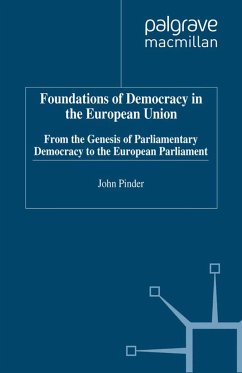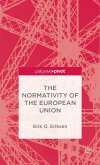This book offers a new approach to the study of European democracy showing how this has developed through key episodes in the long history of the process: precursors in the Low Countries; the founding of British parliamentary then American federal democracy; post-revolutionary France; post-war Germany; the European Parliament. It examines the significance of each episode in the development of national or federal democracy and concludes with a positive assessment of the prospects of liberal democracy. This is an important book for political scientists, historians and others concerned with the development of democracy in Europe and beyond.
'This is a fascinating account of the foundations of democracy. The book's originality lies in at least two features. First, the functions are indentified more broadly than is conventional; that is, not only in the Greek city states, the Enlightenment and the American and French Revolutions. Mediaeval and pre-modern ideas and developments in the Low countries and England are shown to be an important part of the story. Secondly, it shows a complex history of the dissemination and intermingling of ideas; between those two countries, from them and other European sources to America, and back to Europe in the European Union. Thus, the book succeeds admirably in its ambition to shed light for other countries which, since Germany, are reinventing themselves. It also succeeds in meeting its other ambition to explore democratization beyond the level of states and in so doing, corrects the misapprehension that British and continental ideas are sharply distinctive from one another.' - Professor Elisabeth Meehan, School of Politics, Queen's University of Belfast
'This thoughtful and thought-provoking volume puts the current debate on Europe and democracy into an enlightening historical context. Specialists on the European Union would do well to delve into these varied historical experiences which still have their traces in contemporary Europe.' - Professor Helen Wallace, Sussex European Institute, University of Sussex
'This is an extremely interesting account, by several learned hands, of how 'democracy' has developed across Europe, with particular reference to the question of the hour - how can the European Union achieve a greater state of democratic accountability? Its most tantalising, yet suggestive, message concerns the importance of the English and British role in democratic developments - set against a background in which Britain still withdraws from the debate about European political reform.' - Hugo Young, The Guardian and author of theBlessed Plot
'...it is a very well worthwhile piece of work...I greatly hope that it gets the attention it deserves.' - The Rt. Hon. Lord Jenkins of Hillhead O.M.
'This thoughtful and thought-provoking volume puts the current debate on Europe and democracy into an enlightening historical context. Specialists on the European Union would do well to delve into these varied historical experiences which still have their traces in contemporary Europe.' - Professor Helen Wallace, Sussex European Institute, University of Sussex
'This is an extremely interesting account, by several learned hands, of how 'democracy' has developed across Europe, with particular reference to the question of the hour - how can the European Union achieve a greater state of democratic accountability? Its most tantalising, yet suggestive, message concerns the importance of the English and British role in democratic developments - set against a background in which Britain still withdraws from the debate about European political reform.' - Hugo Young, The Guardian and author of theBlessed Plot
'...it is a very well worthwhile piece of work...I greatly hope that it gets the attention it deserves.' - The Rt. Hon. Lord Jenkins of Hillhead O.M.








